It's time for Creative Assembly to make a sequel to Total War: Empire, its messiest and most ambitious game
History needs to be rewritten.
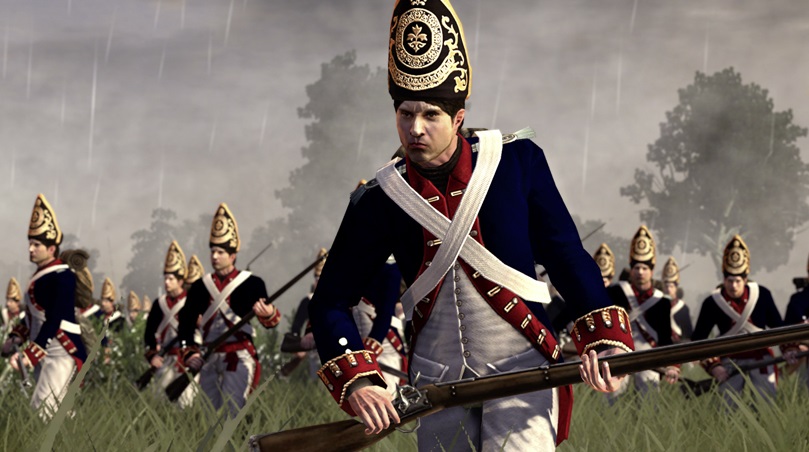
Historical Total War is in a weird place at the moment. These days, it feels like Warhammer is the Total War flagship, with Creative Assembly Sofia being given the reins to history while the primary studio focuses on orcs and elves. Total War: Pharaoh was Sofia's first core Total War game, having previously worked on the smaller Saga spin-offs—but it still feels like it's part of that secondary series, continuing the studio's experiments from Troy: A Total War Saga.
In our Total War: Pharaoh review we gave it 80%, but I haven't fallen in love with it like I did with Creative Assembly's last mammoth-sized historical Total War. Even with its laser focus on a specific era of Chinese history, Three Kingdoms is a vast strategy game, decadently rich in historical and legendary heroes and boasting a vast roster of unique units. It feels experimental, like the Sagas, but has the scale and ambition of the main series. Sadly, support for Three Kingdoms ended swiftly, and Creative Assembly has yet to announce a follow-up.
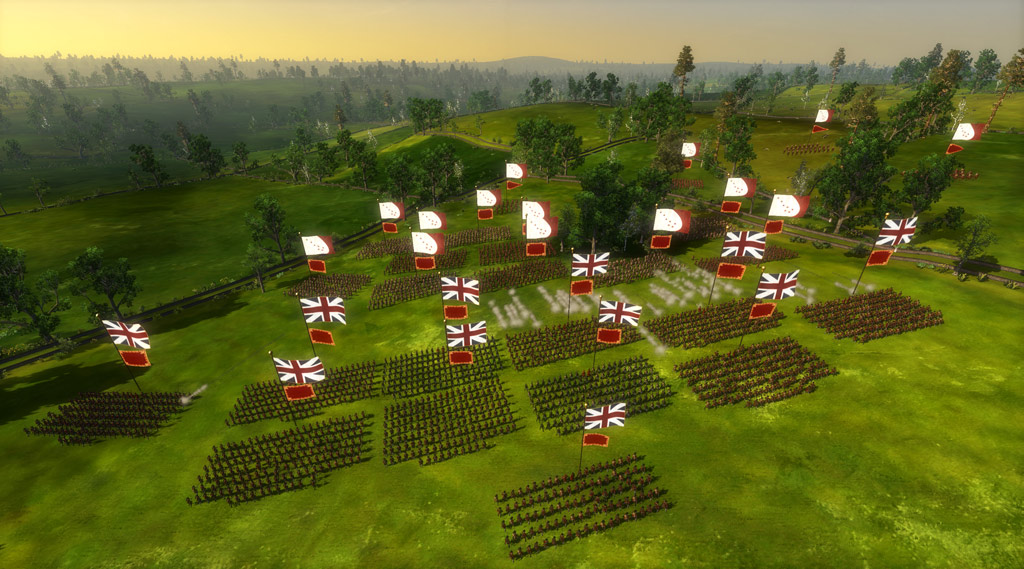
Conveniently, I have some ideas about where the studio should focus its attention: Creative Assembly should return to Total War: Empire. When Empire was first announced, I was bored off my arse working for an insurance broker, and spent most of my days ignoring my responsibilities, instead soaking up every little detail I could about the next Total War. My historical interests normally lie further back—I've got an MA in Classical Studies, so I'm firmly an ancient world boy—but the mind-boggling scope that was being presented made me more excited about this musket-era Total War than any of its predecessors.
This was going to be Total War's take on grand strategy, giving us the whole world to fight over. And equally as exciting was the promise of battles that felt entirely different to the infantry/archers/cavalry dynamic that every other Total War used. Guns! Ships! Death marches under a hail of bullets! Every single screenshot and tease had me vibrating with anticipation.
Lamentably, the reality proved to be disappointing. Empire was Total War at its buggiest, and everything that was fascinating or novel was quickly undone by the atrocious AI, which was incapable of handling a campaign of this scale and was equally inept during battles, gladly making suicidal moves that made no sense. Ranged combat was just a mess, broadly, and I often found myself screaming at my units as they refused to fire just because a couple of soldiers couldn't get into formation. And after a few fights, the novelty of the muskets wore off, revealing the lack of unit diversity and potential tactics. Ship combat, meanwhile, looked incredible, but was ultimately a shallow diversion that left me wanting to escape the sea as quickly as possible. But there was so much good stuff in that messy game that it feels wrong not to give it another go.
World war
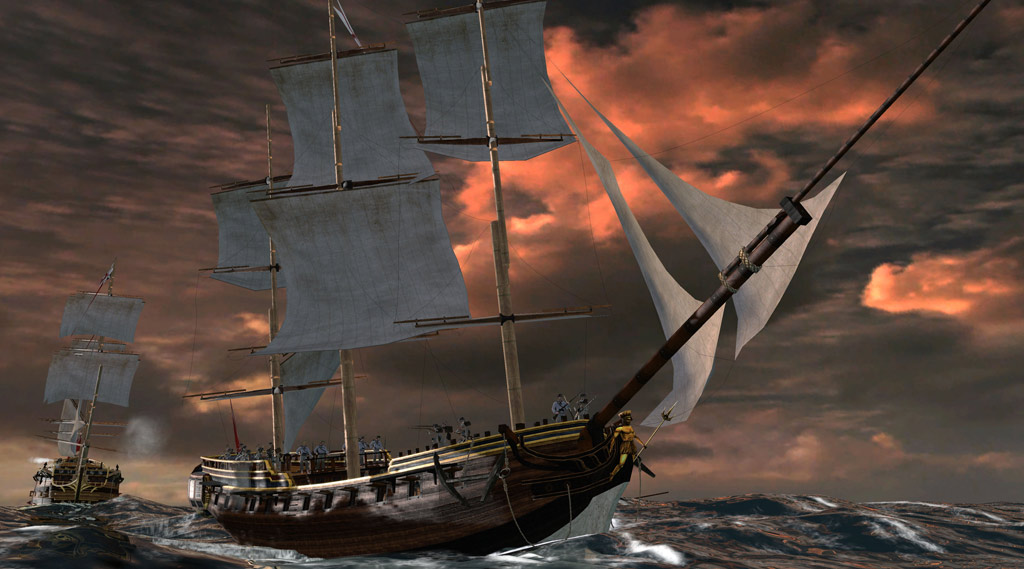
Diplomacy, research and storytelling were given more attention, leading to a richer campaign, even if the systems behind these features always felt a bit rough. Provinces had more management wrinkles thanks to the existence of minor settlements and ports, while cities came in different sizes—something we've seen continue in the series. The potential was unrealised, but the wonky land battles still held a glimmer of greatness, too. They never felt like a lost cause, and with tweaks to pathfinding, AI and more varied terrain they really could have sung. And as much as I never gelled with naval combat, the increased utility of ships, which could raid supply lines, was absolutely a welcome addition.
In the proceeding years, Empire was much improved by patches and modders. The AI never stopped being iffy, but the bugs were ironed out, and even more improvements were made by DarthMod, long considered one of the best things to come out of Empire.
Keep up to date with the most important stories and the best deals, as picked by the PC Gamer team.
Nick Thomadis, the creator of DarthMod, went on to join Ukrainian developer Game-Labs, where he served as lead designer of Ultimate General: Civil War, among others. Civil War's approach to the battles of the era really feels like a blueprint that Creative Assembly should follow. The unit diversity issues, for instance, are handled superbly by making units so much more versatile. This era isn't really conducive to countless different troop types, but what Civil War did was make them more flexible, with lots of different historical weapons altering their capabilities. And greater importance was given to how you actually used the troops. Taking advantage of terrain, equipment and flanking manoeuvres made all the difference. So many Total War battles still come down to what units you pick, and the classic rock, paper, scissors paradigm, but Civil War's battles placed skill and tactical decision making at the forefront.
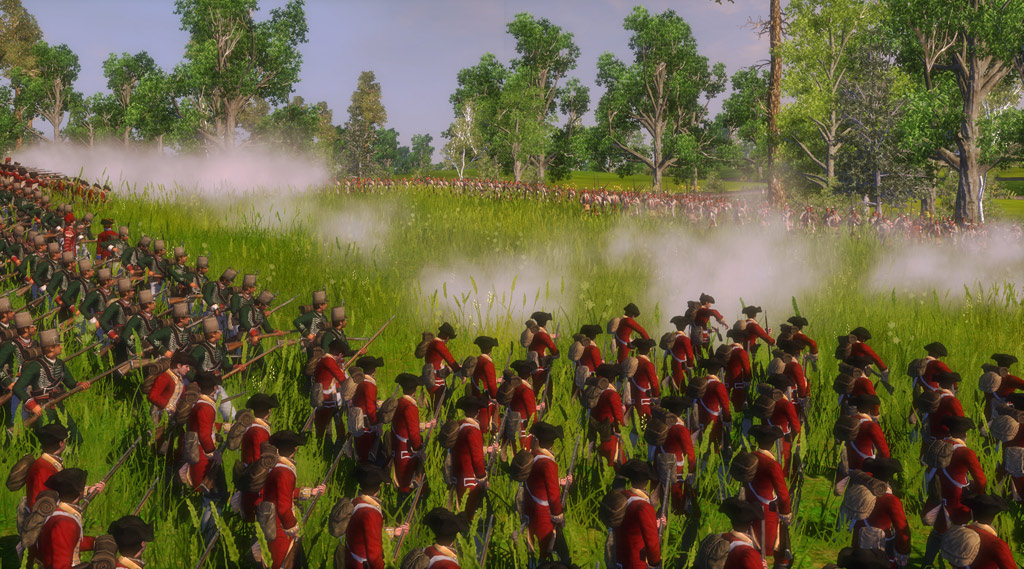
Creative Assembly's work on Warhammer, meanwhile, has shown the studio has become more capable of building games that manage gargantuan campaigns. The Immortal Empires campaign is so huge I can hardly fathom it, with hundreds of factions fighting over a whole fantasy world. It's just one continuous space, not split up into different theatres, and while Total War's AI still isn't flawless, it's a lot more able to deal with such a vast playing field than it was back in the Empire days.
This combination of potential influences and Creative Assembly's experience makes it much better positioned to tackle Empire again.
This combination of potential influences and Creative Assembly's experience makes it much better positioned to tackle Empire again, and it also feels like a shake-up the historical games need. Even with Three Kingdom's hero duels and the tactical quirks of Troy and Pharaoh, Total War's real-time battles haven't dramatically changed since the early days, at least not when it comes to the moment-to-moment action. You still, broadly, smash units into each other, trying to make sure your unit type has an advantage over your foe's, and when the enemy is engaged you get some troops in behind them, surrounding them and whittling down their numbers and morale.
Sure, this distilled description ignores a lot of nuance, but you can absolutely get by on doing nothing more than this. With its 18th and 19th Century setting, however, Empire gives us an entirely different way to fight. The proliferation of firearms and artillery completely transformed the battlefield, and while Empire didn't nail it the first time around, there's no denying that it felt like a completely new breed of Total War. It's just unfortunate that this style of battle ended up being an evolutionary dead end for the series, with the exception of Shogun 2's excellent Fall of the Samurai DLC, which has sadly since been rebranded as a standalone Saga and stuck in a more expensive bundle.
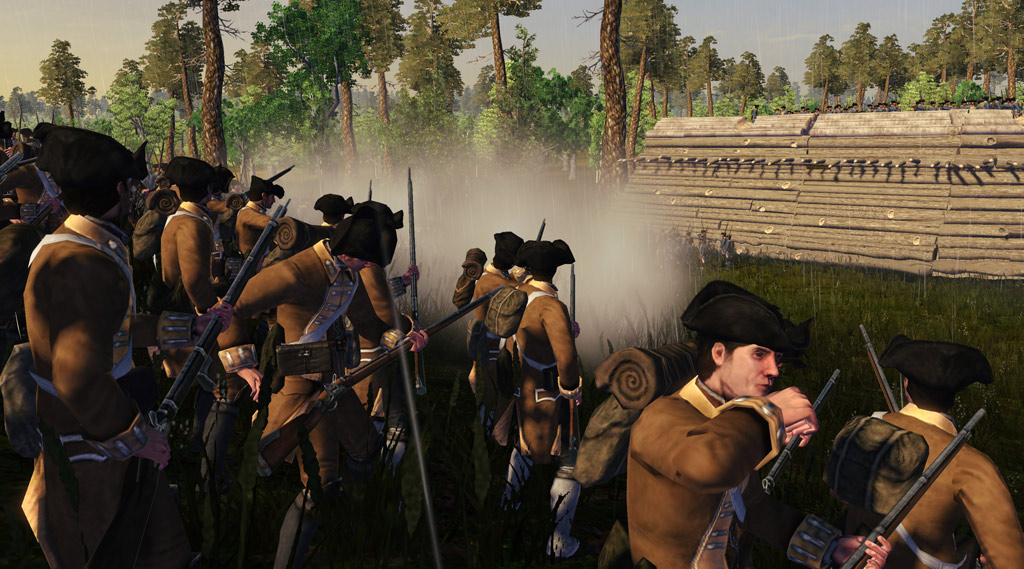
A bold second attempt, though, could be just what Total War—and Creative Assembly—needs. Something spicy and unexpected to refresh the series and make it stand apart from Warhammer. Because, right now, what does the main series really offer that Warhammer doesn't? Only a more grounded setting, with fewer factions and unit types. They largely play the same way, but Warhammer offers more with its RPG and RPG-adjacent systems.
I suspect, though, that Sega is going to push for something more conservative. Creative Assembly is going through a bad time at the moment, with its ill-advised FPS, Hyenas, getting scrapped right before it reached the finish line. On the Total War side, meanwhile, offering smaller DLCs without reducing them in price has created a lot of bad blood with the community. This is exactly the kind of environment where I'd expect a publisher to play it safe with something more familiar and popular, maybe Medieval 3? But I'd love to be surprised.

Fraser is the UK online editor and has actually met The Internet in person. With over a decade of experience, he's been around the block a few times, serving as a freelancer, news editor and prolific reviewer. Strategy games have been a 30-year-long obsession, from tiny RTSs to sprawling political sims, and he never turns down the chance to rave about Total War or Crusader Kings. He's also been known to set up shop in the latest MMO and likes to wind down with an endlessly deep, systemic RPG. These days, when he's not editing, he can usually be found writing features that are 1,000 words too long or talking about his dog.

